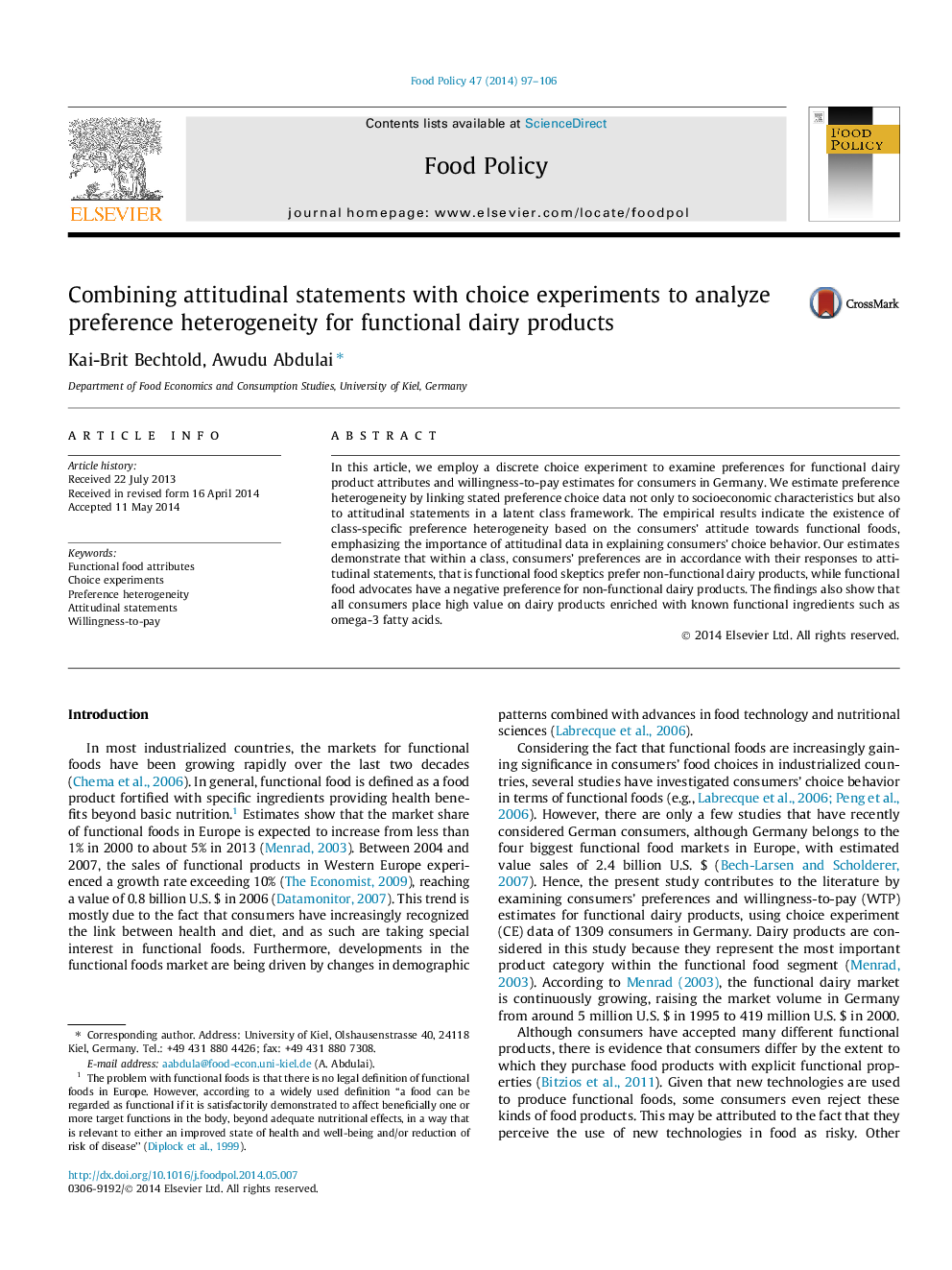| Article ID | Journal | Published Year | Pages | File Type |
|---|---|---|---|---|
| 5070410 | Food Policy | 2014 | 10 Pages |
Abstract
In this article, we employ a discrete choice experiment to examine preferences for functional dairy product attributes and willingness-to-pay estimates for consumers in Germany. We estimate preference heterogeneity by linking stated preference choice data not only to socioeconomic characteristics but also to attitudinal statements in a latent class framework. The empirical results indicate the existence of class-specific preference heterogeneity based on the consumers' attitude towards functional foods, emphasizing the importance of attitudinal data in explaining consumers' choice behavior. Our estimates demonstrate that within a class, consumers' preferences are in accordance with their responses to attitudinal statements, that is functional food skeptics prefer non-functional dairy products, while functional food advocates have a negative preference for non-functional dairy products. The findings also show that all consumers place high value on dairy products enriched with known functional ingredients such as omega-3 fatty acids.
Related Topics
Life Sciences
Agricultural and Biological Sciences
Food Science
Authors
Kai-Brit Bechtold, Awudu Abdulai,
